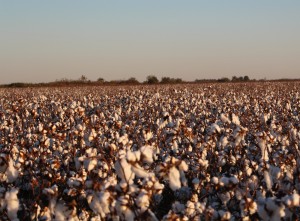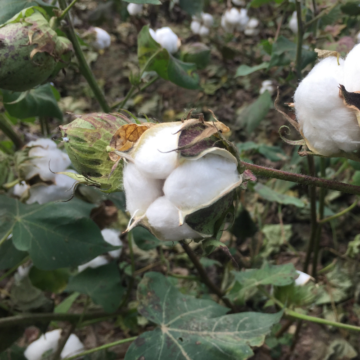The phrase “walkin’ in high cotton” is one I’ve heard for a long time, but I’m thinking it may have been country music band Alabama that raised the visibility of the phrase “High Cotton” to a place where lots of people heard it. But I’m not sure everyone knows some of the ways it can connect to farming cotton.
It seems generally accepted that high cotton is a good thing and usually has a financial component. And if you watch the video with Alabama, you can see the smiles and hear all the things that were great in the town where they grew up. (By the way, did I miss the cotton fields in that video? If you catch it let me know.)
[youtube=https://www.youtube.com/watch?v=IhsbhbnKoR0]
 I’ve always assumed the phrase started in the South a long time ago when tall cotton plants were seen as healthiest, highly productive, etc. The cash earned of of a crop like that would be the sort that could have helped you through a leaner time too.
I’ve always assumed the phrase started in the South a long time ago when tall cotton plants were seen as healthiest, highly productive, etc. The cash earned of of a crop like that would be the sort that could have helped you through a leaner time too.
HIGH COTTON noun (also TALL COTTON) [1930s and still in use] (originally U.S. Black) The good life, the materially successful life. [the wealth that comes from a high cotton crop]
Tall or high cotton would be great for handpicking (and in some countries they continue to push for tall, bushy-type plants). That way as people pick the crop by hand, the physical exertion of bending down & straightening back up is lessened. The bushy type also provides greater access during harvest.
However, today, in the US, farmers look for ways to get the plants to grow in the optimum range. Farmers are able to better manage the inputs into the crop so they focus the growth on fruit (flowers first then bolls) rather than plant height. In general, more compact plants are easier to run through the cotton picker. I’ve seen plants get away from farmers at times where a plant can be run through the mechanical cotton picker quickly and easily.
What references to High Cotton come to mind for you?





[…] What it is — A saying that speaks to a really good part of life. I even wrote a whole post on this one! High Cotton blog post […]